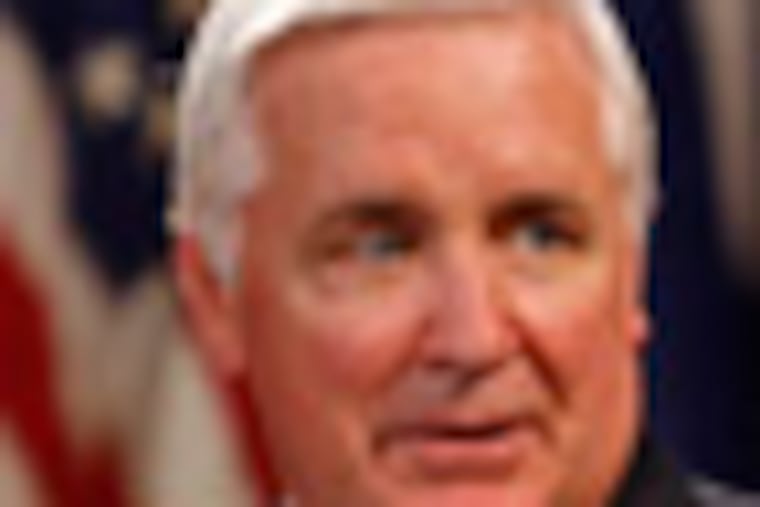Inquirer Editorial: Must find cash to fix roads
With more and more roads leading back to Pennsylvania's transportation funding crisis these days, Gov. Corbett and Harrisburg lawmakers should be finding their way to a solution - and soon.

With more and more roads leading back to Pennsylvania's transportation funding crisis these days, Gov. Corbett and Harrisburg lawmakers should be finding their way to a solution - and soon.
They have one possible route already: Corbett's own advisory panel last year charted a nearly painless course of raising driver fees and the wholesale gas tax to bring in $2.5 billion more for highways, bridges, and mass transit.
The governor is on record as well that something must be done to meet deferred maintenance, which has left the state with crumbling roads, deteriorating bridges, and SEPTA and other mass transit systems across the state having to scale back on key upgrades.
But as Corbett begins to prepare his third-year budget, there's no sign yet that he will endorse strategies that rely on fees and taxes - in keeping with his crippling no-taxes mantra.
By contrast, state legislators appear far more willing to confront the need to pump more revenue into transportation projects that business groups rightly see as critical to the state's economy.
While both the House and Senate offered proposals over the past year, leaders in those Republican-controlled houses understandably need to await Corbett's nod. Clearly, it's time to get moving, with more signposts popping up on the landscape recently.
SEPTA officials, for instance, reported that its Regional Rail riders will have to be content with the many older cars on their daily commute. Rather than replace 231 trains that ferry the bulk of passengers, the agency will keep the 36- and 38-year-old rolling stock in service because it's short of capital funds. That's despite the agency's overall repairs budget being at a 15-year low, at $303 million, which pales in comparison to other big-city systems.
Another alarm has been sounded on the state's road and bridge network. A national engineers' group reports that Pennsylvania's roads are more congested and rutted, and thousands of bridges deteriorated to where nearly half are "structurally deficient or functionally obsolete." Traveling the state's major urban highways, the American Society of Civil Engineers found more than half in "poor or mediocre condition."
Meanwhile, the Pennsylvania Turnpike continues to strain under a growing debt triggered by borrowing to pump $450 million annually into state coffers for state Department of Transportation bridge and road work, and mass transit. A 2007 law had envisioned that Interstate 80 users would kick in funding through tolls, but federal officials nixed the plan amid local opposition.
For turnpike users bearing the unfair burden of paying for maintenance, the lack of a statewide funding strategy assures yearly toll hikes. For motorists statewide, driving bad roads means an extra $3.2 billion in vehicle repairs and operating costs.
So, even before the likelihood of a bridge collapse comes true, the cost of Harrisburg's inaction is as real as the few pennies' hike in the gasoline tax that it would take to responsibly face up to the state's transportation woes.